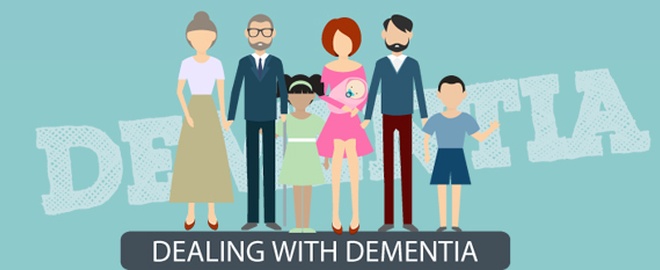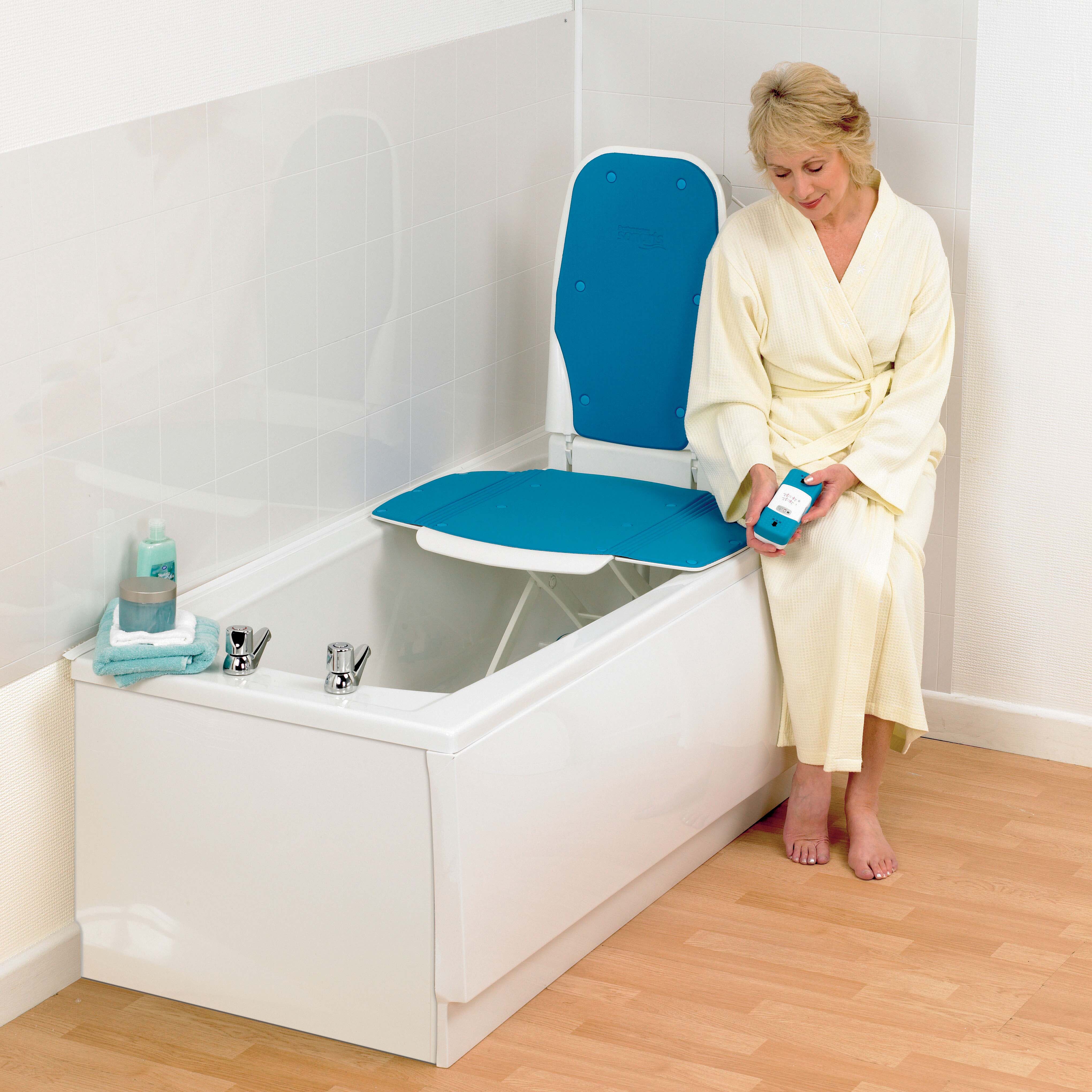DEALING WITH DEMENTIA...


The word dementia describes a set
of symptoms that may include memory loss and difficulties with
thinking, problem-solving or language. These changes are often
small to start with, but for someone with dementia they have become
severe enough to affect daily life. A person with dementia may also
experience changes in their mood or behaviour.
Dementia is caused when the brain is
damaged by diseases, such as Alzheimer's disease or a series of
strokes. Alzheimer's disease is the most common cause of dementia
but not all dementia is due to Alzheimer's. The specific symptoms
that someone with dementia experiences will depend on the parts of
the brain that are damaged and the disease that is causing the
dementia.
There are many different types of dementia although some are far more common than others. They are often named according to the condition that has caused the dementia. Below we look at the 3 most common causes...
Alzheimer's disease, named after the doctor who first described it (Alois Alzheimer), is a physical disease that affects the brain. There are more than 520,000 people in the UK with Alzheimer's disease. During the course of the disease, proteins build up in the brain to form structures called 'plaques' and 'tangles'. This leads to the loss of connections between nerve cells, and eventually to the death of nerve cells and loss of brain tissue. People with Alzheimer's also have a shortage of some important chemicals in their brain. These chemical messengers help to transmit signals around the brain. When there is a shortage of them, the signals are not transmitted as effectively. As discussed below, current treatments for Alzheimer's disease can help boost the levels of chemical messengers in the brain, which can help with some of the symptoms.
Alzheimer's is a progressive disease. This means that gradually, over time, more parts of the brain are damaged. As this happens, more symptoms develop. They also become more severe.
Vascular dementia is caused by reduced blood supply to the brain due to diseased blood vessels.
To be healthy and function properly, brain cells need a constant supply of blood to bring oxygen and nutrients. Blood is delivered to the brain through a network of vessels called the vascular system. If the vascular system within the brain becomes damaged - so that the blood vessels leak or become blocked - then blood cannot reach the brain cells and they will eventually die.
This death of brain cells can cause problems with memory, thinking or reasoning. Together these three elements are known as cognition. When these cognitive problems are bad enough to have a significant impact on daily life, this is known as vascular dementia.
Lewy bodies are named after the German doctor who first identified them. They are tiny deposits of a protein (alpha-synuclein) that appear in nerve cells in the brain. Researchers don't have a full understanding of why Lewy bodies appear, or exactly how they contribute to dementia. However, this is linked to two factors, low levels of important chemicals (mainly acetylcholine and dopamine) that carry messages between nerve cells and a loss of connections between nerve cells, which then die.Lewy bodies are the cause of DLB and Parkinson's disease. They are two of several diseases caused by Lewy bodies that affect the brain and nervous system and get worse over time. These are sometimes called Lewy body disorders.
Diagnosing dementia is often
difficult, particularly in the early stages. The GP is the first
person to consult. The GP may then refer the person being diagnosed
to a specialist such as a consultant.
Assessments can include conversations with the person being
diagnosed and those close to them, a physical examination, memory
tests and/or brain scans.
The Mini Mental State Examination (MMSE) is the most commonly used
test for complaints of memory problems or when a diagnosis of
dementia is being considered.
Becoming forgetful does not necessarily mean that you have
dementia. Many of us notice that our memory becomes less reliable
as we get older. It can also be a symptom of stress or depression.
In rare cases, dementia-like symptoms can be caused by vitamin
deficiencies or a brain tumour.
Even if the diagnosis is dementia, there is lots that can be done
after a diagnosis to support someone to live well with the
condition.
Although there is no cure for dementia, drug treatments may help to alleviate some of the symptoms. Non-drug treatments can also help someone to manage their condition, and support them to live well after a diagnosis.
As a person's dementia develops, it
is likely to have an impact on their ability to carry out certain
activities. This factsheet looks at why it is important to remain
active, including maintaining everyday skills. It gives tips to
carers on how the person with dementia can continue to take part in
everyday tasks, and suggests pastimes that might be suitable at
different stages of dementia.
Meaningful activities should be enjoyable, and may be linked to
hobbies or interests that the person enjoyed before the diagnosis
of dementia. Activities such as taking a walk, cooking or painting
can help preserve dignity and self-esteem. Some of the most
beneficial activities can be simple, everyday tasks such as setting
the table for a meal or folding clothes. They can help a person
with dementia feel connected to normal life and can maximise choice
and control. Some activities offer an emotional connection with
others.
Benefits of keeping active and maintaining everyday skills
Keeping occupied and stimulated can improve quality of life for the
person with dementia, as well as for those around them. Activities
can act as an opportunity for fun and playfulness. They can also
encourage independence, social inclusion, communication or
expression of feelings.
Benefits to the person with dementia:
Activities can bring enjoyment and pleasure.
By remaining involved and active, a person with dementia can maintain their skills and independence for longer.
Activities can help people to express how they are feeling and relieve the symptoms of anxiety and depression.
Activities can increase social interaction and reduce isolation.
Sharing an activity with others may promote shared interests, increased interactions and understanding.
An activity may help a person feel important and valued because it relates to past roles and experiences, such as raising children or helping around the home.
Shared activity can promote a sense of belonging.
Leading a physically active lifestyle can have a significant impact on wellbeing. Exercise is beneficial for physical and mental health and can improve the quality of life for people at all stages of dementia.
Benefits to carers, family and friends:
Taking part in activities with a person with dementia can help maintain a good relationship.
Activities can offer a break from the everyday caring routine.
Shared activities can provide mutual enjoyment and companionship, which can support the relationship between the person with dementia and their carer.
Activities can encourage closeness between a person with dementia and people around them and improve feelings of comfort and security.
Engaging a person with dementia in meaningful activities may improve behaviour that challenges.




Copyright ©2015 Care Scene - A&R Publishing
CARE SCENE
PO BOX 1273 BLACKPOOL FY1 9ET
01253 396751